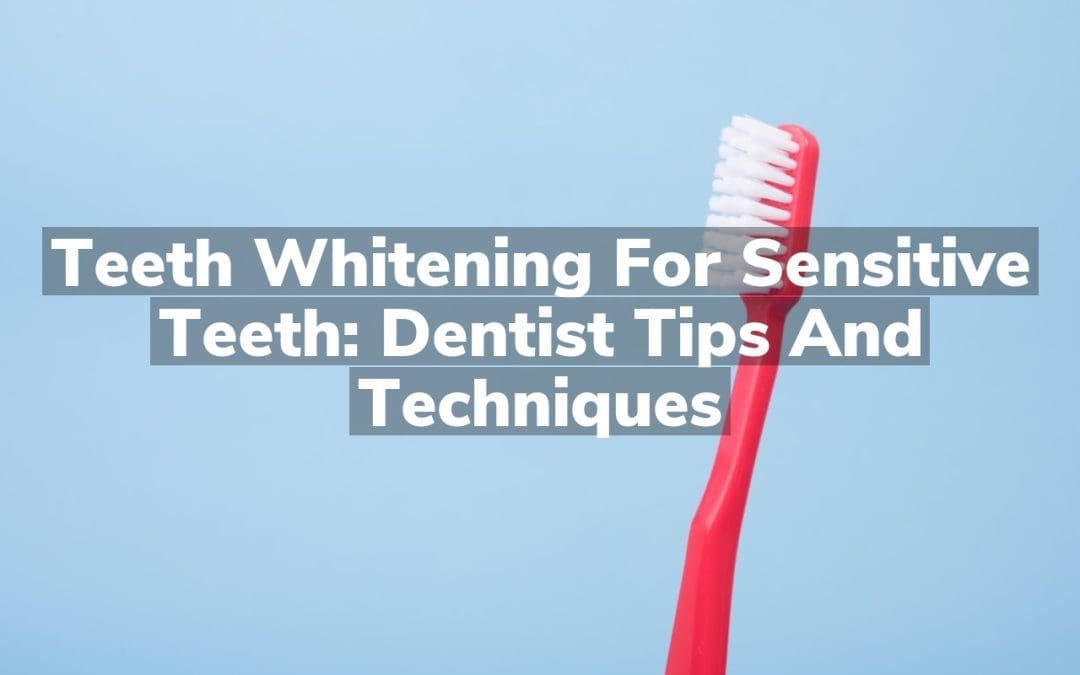Are you curious about how teeth whitening works for those with sensitive teeth? Generally, dentists use specific methods to minimize discomfort while achieving a brighter smile. These techniques are tailored to protect sensitive areas during the whitening process.
Causes of Teeth Sensitivity
Teeth sensitivity can occur for various reasons, often impacting individuals who are exploring teeth whitening options. One common cause is the thinning of tooth enamel, which protects the underlying dentin and nerve endings in the teeth. When this enamel wears down, it can lead to increased sensitivity, especially when consuming hot, cold, or sweet foods and drinks. Other factors contributing to sensitive teeth include gum recession, which exposes the roots of the teeth, and certain dental procedures.
For those who experience heightened sensitivity or discomfort following teeth whitening treatments, understanding the underlying causes is crucial. An informative resource that delves deeper into this issue is Unbearable Pain After Teeth Whitening: Causes and Solutions. This article explores why some individuals may face severe pain after such treatments and discusses the general nature of this sensitivity.
Understanding Teeth Whitening for Sensitive Teeth
Teeth whitening is a popular cosmetic dental procedure aimed at removing stains and enhancing the brightness of one’s smile. The process typically involves the application of a bleaching agent to the teeth, which works to lighten discoloration caused by foods, drinks, smoking, or aging. It’s important to note that the effectiveness and suitability of teeth whitening can vary widely from person to person, depending on the natural color of their teeth and the degree of staining.
While teeth whitening is generally safe, individuals with sensitive teeth may experience different reactions to the treatment. Therefore, understanding the various processes and how they interact with unique dental profiles is crucial. For those interested in exploring teeth whitening options, visiting a professional for a consultation can provide insights tailored to individual needs and conditions. If you’re looking to Brighten Your Smile in Colorado Springs, consulting with a dental professional can be an excellent first step.
Impact of Teeth Whitening for Sensitive Teeth
When considering teeth whitening, it’s important to understand how the process might affect tooth sensitivity. Generally, teeth whitening involves the use of chemicals that can alter the tooth’s enamel temporarily. For individuals with sensitive teeth, this alteration might lead to heightened sensitivity during and after the treatment. The degree of sensitivity experienced can vary widely from person to person, depending on the natural predisposition of their teeth and the condition of their enamel.
Frequency of Whitening Treatments
When considering teeth whitening for sensitive teeth, understanding the appropriate frequency of treatments is crucial. Over-whitening can lead to increased sensitivity and other dental issues, so it’s important to consider how often these procedures are performed. Generally, the frequency will vary based on individual sensitivity and the specific condition of one’s teeth. Consulting with a professional, such as your local Colorado Springs Dentist at One Stop Dental, can provide clarity on how often you should consider whitening treatments without compromising your dental health.
Consulting Professionals About Sensitivity Concerns
When considering teeth whitening options for sensitive teeth, it’s important to engage with dental professionals to discuss any concerns related to sensitivity. These experts can provide insights based on their knowledge and experience with similar cases. Engaging with a professional ensures that all considerations regarding oral health and sensitivity are appropriately addressed.
Conclusion
For further inquiries, feel free to call us at (719) 447-1199 or read our reviews on Google Maps.


